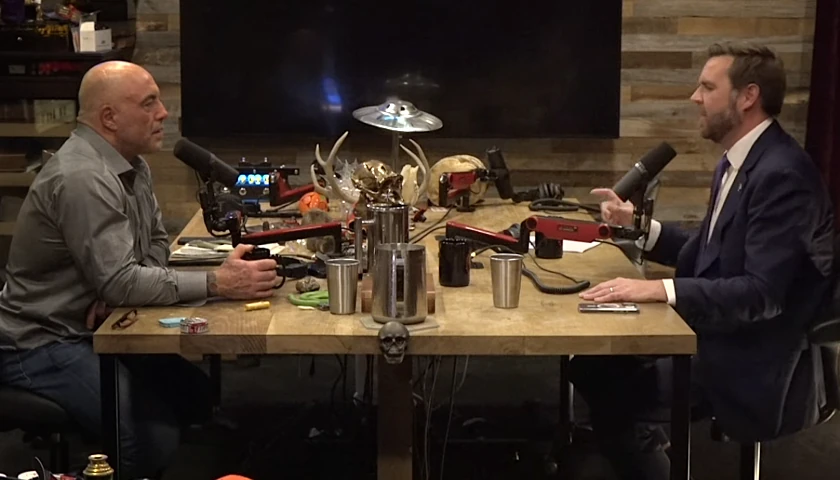Bipartisan enthusiasm for election-reform legislation appeared solid at a Pennsylvania Senate State Government Committee hearing on Thursday, save for one part: video live-streaming of mail-in-ballot counting.
Elements of the bill, sponsored by State Sen. David Argall (R-Pottsville) and State Sen. Sharif Street (D-Philadelphia), have arisen largely from recommendations in a June 2021 report by the Senate Special Committee on Election Integrity and Reform. Argall and Street’s proposal excludes some of the ad hoc panel’s more contentious ideas, particularly enhanced voter-identification rules, which State Rep. Seth Grove (R-York) is spearheading in separate legislation. (While Gov. Tom Wolf [D] vetoed Grove’s bill in June, the representative has reintroduced it in light of the governor’s subsequent remarks in favor of a strengthened voter-ID requirement.)
At the hearing, Republican and Democratic lawmakers, as well testifying experts, expressed dissatisfaction with county officials’ current ability to, first, get mail-in ballots to voters who have requested them in a timely fashion and, second, to canvass mail-in ballots promptly.
In response to the former concern, the Argall-Street proposal would move up the deadline by which a Keystone State voter could apply for an absentee ballot; current law lets someone request a ballot one week prior to Election Day while the bill would insist they order it an additional week earlier. To ensure efficient canvassing, the measure would permit counties to begin machine-scanning (but not tabulating or publishing the results of) mailed-in vote sheets three days before an election.
Testifying before the committee, County Commissioners Association of Pennsylvania (CCAP) Executive Director Lisa Schaefer praised members of both parties for their work on the legislation but criticized a section of it mandating live-streaming of absentee-vote counting. She said CCAP fears the provision could “backfire on us and go the other way” from the transparency the idea is meant to achieve.
“With live-streaming and recording, where you could end up is people being able to—if it’s publicly available—capture images that they believe show some misdeed and share that on social media,” Schaefer said. “And it might be something that actually is different from [how] it appears or… could be manipulated even, and we know how easy it is to do that these days. And once those things are out there on social media, they take on a life of their own and they could be really hard to get accurate information [about them] out to combat that.”
Schaefer did not cite any recordings of which she thought some people had misapprehensions. Her comments however called to mind the dispute between Donald Trump attorney Rudy Giuliani and Trump opponents last December regarding the vote-counting process in Fulton County, Georgia.
Specifically, Giuliani tweeted, “Video footage from Georgia shows suitcases filled with ballots pulled from under a table AFTER supervisors told poll workers to leave [the] room and 4 people stayed behind to keep counting votes.” Supporters of the process in Georgia denied Giuliani’s assessment.
Schaefer furthermore suggested that some jurisdictions may lack the means to set up video streaming and recording of their canvassing processes.
“Purely practically, counties have a wide variety of [information-technology] capacities and infrastructure available to support live-streaming or recording,” she said. “So, for some counties, this could really represent a cost for which there doesn’t appear to be financial support.”
Both of Schaefer’s objections to video streaming elicited pushback from State Sen. Kristin Phillips-Hill (R-Jacobus).
“We want to trust you,” Phillips-Hill said. “The problem is that people are concerned, and when something happens behind closed doors, it causes them to have concern, whether it’s warranted or it’s not. And right now we hear from constituents day after day about their lack of trust in the process. And having trust in the integrity and fidelity of our election process which forms the bedrock of this republic is really, really essential.”
The senator, who chairs her chamber’s Communications and Technology Committee, assured Schaefer that lawmakers of both parties are working to close regional gaps in technological resources that give rise to the concern about streaming capabilities.
“I do think that we need to demystify this and we need to provide that assurance to the public that there is fidelity and integrity in their election process,” Phillips-Hill said.
– – –
Bradley Vasoli is a reporter at The Tennessee Star and The Star News Network. Follow Brad on Twitter at @BVasoli. Email tips to [email protected].
Photo “David Argall” by Senator David G. Argall. Photo “Sharif Street” by Senator Sharif Street. Background Photo “Livestreaming Wikimania” by Sebastiaan ter Burg. CC BY 2.0.








